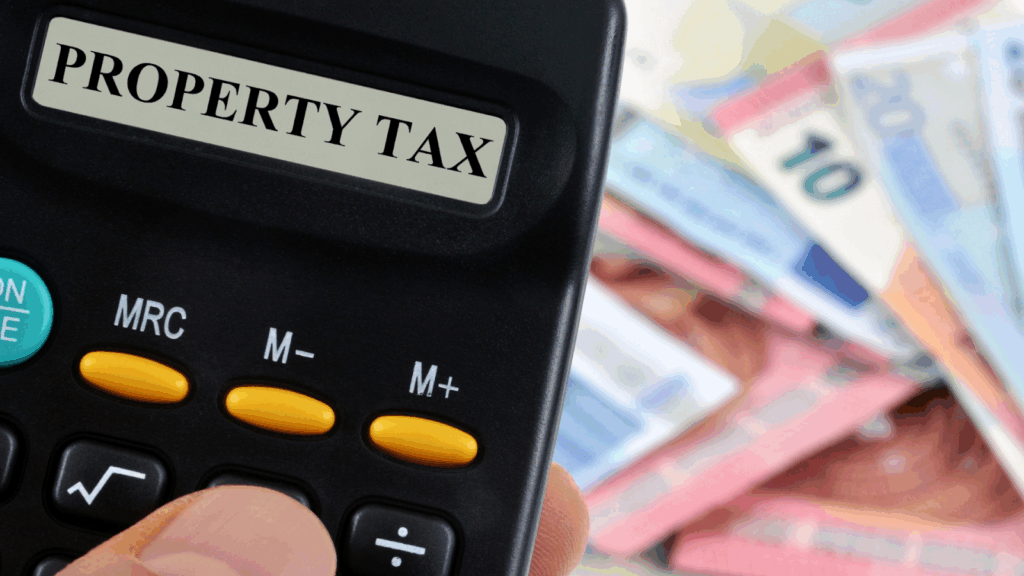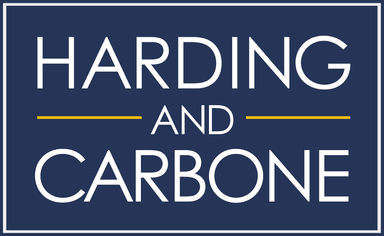
Everything You Should Know About Galveston County Property Taxes
September 18, 2025
Key Takeaways:
- Appraisals: Annual property values set by GCAD directly affect your tax bill and can be protested if inaccurate.
- Exemptions: Homestead, senior, veteran, and agricultural exemptions can reduce taxable value and lower yearly costs.
- Deadlines: Missing key Galveston County tax deadlines leads to penalties, interest, or even legal action.
For over 50 years, Harding & Carbone has been a trusted name in property tax representation across Texas, serving thousands of homeowners and businesses. As one of the state’s oldest and largest firms dedicated solely to property tax matters, we bring unmatched experience and proven results to clients in Galveston County and beyond.
Property taxes are a significant financial responsibility for property owners, and in Galveston County, the combination of annual appraisals and local tax rates often leaves people paying more than necessary. Rising property values, overlooked exemptions, or simple errors in assessments can quickly increase tax burdens year after year. Understanding how the system works — from valuations to deadlines — is essential for protecting your investment and avoiding unnecessary expenses.
In this piece, we will be discussing Galveston County property tax, including how taxes are calculated, what exemptions are available, important deadlines to remember, and practical strategies to help reduce your bill.
Navigating Galveston County Property Taxes
Property taxes in Galveston County play a vital role in funding schools, public safety, and other local services. For homeowners and businesses, understanding how these taxes work is key to managing costs effectively. Many people end up paying more than they should, often because of inaccurate assessments or overlooked exemptions.
At Harding & Carbone, we know that navigating the system can feel overwhelming. The Galveston County Appraisal District (GCAD) assigns property values each year, and local entities such as school districts, cities, and special districts set tax rates based on their budget needs. Rising property values or small errors in assessments can cause your tax bill to increase even if tax rates stay the same.
By gaining clarity on how property values are determined, what exemptions apply, and what steps you can take to appeal an overassessment, property owners in Galveston County can protect themselves from overpaying. Harding & Carbone provides guidance throughout this process, helping clients understand their rights and reduce unnecessary tax burdens.

How Property Taxes Are Calculated In Galveston County
Every property owner in Galveston County receives a tax bill based on three main components: the appraised value, the applicable tax rates, and any exemptions that may apply. Understanding how these elements come together is the first step to keeping your bill manageable.
Appraised Value
Each year, the Galveston County Appraisal District (GCAD) determines the market value of your property. They review recent home sales, neighborhood trends, and property improvements to estimate what your property would sell for in the current market. This figure becomes the foundation of your tax calculation.
Assessment Ratios
In Texas, properties are assessed at 100% of their market value. That means the appraised figure set by GCAD is treated as the taxable value before any exemptions are applied. While this creates uniformity, errors in the appraisal can lead to inflated bills — which is why reviewing your assessment carefully is so important.
Tax Rates
Once the taxable value is established, local jurisdictions — including cities, school districts, and special districts — each set their own tax rates. These rates vary depending on budgetary needs and are combined to determine the overall percentage applied to your property. Even if the rates stay consistent, higher appraised values can still increase the final bill.
Exemptions And Adjustments
Approved exemptions, such as those for homesteads, seniors, veterans, or agricultural land, are deducted from the taxable value before the rates are applied. This step can make a significant difference in the amount you owe each year.
Final Calculation
With the taxable value and rates in place, your final property tax bill is determined. For example, a home valued at $300,000 with a combined rate of 2.5% would result in $7,500 in taxes before exemptions or appeals. Filing for eligible exemptions or protesting an overassessment can lower this figure substantially.
Important Property Tax Deadlines In Galveston County
Staying on top of property tax deadlines in Galveston County is critical to avoiding penalties and protecting your rights as a property owner. Missing key dates can mean higher bills, lost exemption opportunities, or forfeiting the chance to protest an inaccurate appraisal.
- January 1 – The start of the appraisal year. Property values and exemptions are based on ownership and property condition as of this date.
- April 15 – Last day to file rendition statements for business personal property. Missing this deadline can result in penalties.
- May 15 – Deadline to file a protest if you believe your property has been overvalued. This is one of the most important dates for homeowners who want to reduce their tax bill.
- October 1 – Tax bills are typically mailed out. This is the time to check your bill for accuracy and confirm exemptions are applied.
- January 31 (following year) – Final date to pay property taxes without penalty or interest. Payments made after this deadline accrue fees and may lead to legal action
Because property values in Galveston County can change significantly from year to year, it’s important to review your appraisal notice as soon as it arrives. Acting early gives you more time to prepare a strong protest if you believe your property is overassessed.
Harding & Carbone works with property owners to meet every deadline, making sure opportunities for savings aren’t missed and penalties are avoided.
Exemptions Available To Galveston County Homeowners
Property tax exemptions are one of the most effective ways to lower your annual tax bill. By reducing the taxable value of your property, exemptions can save homeowners in Galveston County thousands of dollars over time. Unfortunately, many property owners miss out simply because they don’t know what exemptions are available or how to apply.
Homestead Exemption
The homestead exemption applies to a primary residence and provides one of the most valuable forms of tax relief. It lowers the taxable value of your home and limits annual appraisal increases to 10%. To qualify, you must occupy the home as of January 1 and apply with the Galveston County Appraisal District using a Texas ID that matches your property address.
Over-65 Exemption
Homeowners age 65 and older may qualify for additional reductions, including a freeze on school district property taxes. Once in place, the school portion of your taxes cannot increase, even if property values rise. Proof of age is required, and the exemption can transfer if you move within Texas.
Disabled Veteran Exemption
Veterans with a service-connected disability rating may qualify for partial or full exemptions, depending on their level of disability. A 100% disabled veteran is exempt from all property taxes. In some cases, surviving spouses may also qualify for relief.
Agricultural Exemptions
Land used for farming, ranching, or timber production can be taxed based on its productive use rather than market value. This often results in a significantly lower taxable value. To qualify, the land must be used primarily for agricultural purposes and meet GCAD’s requirements.
Payment Methods And Options For Galveston County Taxes
Once property tax bills are issued in the fall, homeowners and businesses in Galveston County have several options for making payments. Choosing the method that works best for your situation can help you stay compliant and avoid costly penalties.
Online Payments
The Galveston County Tax Office offers online payment options through its website. Payments can be made with credit cards, debit cards, or electronic checks. Online transactions are typically processed quickly, giving property owners instant confirmation, though convenience fees may apply.
In-Person Payments
For those who prefer face-to-face service, payments can be made at the Galveston County Tax Office. Accepted methods include cash, check, money order, and card payments. Paying in person allows you to ask questions and verify that your payment is properly credited.
Mail Payments
Property owners may also send checks or money orders by mail along with their payment stubs. To avoid penalties, it’s important that mailed payments are postmarked by January 31 of the following year. Missing this deadline can result in additional interest and fees.
Payment Plans
For taxpayers who cannot pay their full bill at once, Galveston County provides installment plans. These structured payments can make large bills more manageable and help avoid legal consequences for unpaid taxes. Arrangements must be made directly with the tax office before the due date.
Tips For Reducing Your Property Tax Bill
For many Galveston County homeowners, property taxes are one of the largest recurring expenses. While tax bills can feel unavoidable, there are several strategies that can make a meaningful difference in what you pay each year.
Review Your Property’s Appraisal
Because the Galveston County Appraisal District bases your taxes on market value, errors in the appraisal can directly increase your bill. Check details such as square footage, property condition, and neighborhood comparisons. Even small inaccuracies can add up to significant overpayment.
Apply For Exemptions
Exemptions reduce the taxable portion of your property’s value. The homestead exemption is a must for primary residences, while seniors, disabled veterans, and agricultural landowners may qualify for additional relief. Filing on time with GCAD is essential to benefit from these savings.
Monitor Your Tax Bill
Each fall, carefully review your property tax bill for accuracy. Confirm that all exemptions are applied and that the assessed value reflects your property fairly. Identifying mistakes early helps you avoid paying more than necessary. Managing property taxes in Texas requires expertise and attention to detail. Explore our full range of property tax services to see how we help both homeowners and businesses keep tax bills under control.

File A Protest When Needed
If your property is overvalued, you have the right to file a protest. A successful appeal can lower your taxable value and reduce your bill. Preparing evidence such as comparable sales or condition reports strengthens your case.
Work With Professionals
The property tax system is complex, and many owners don’t have the time to manage the protest process themselves. Harding & Carbone helps homeowners and businesses challenge overassessments and secure the maximum savings available under the law.
Final Thoughts
Property taxes in Galveston County affect every homeowner and business, but they don’t have to be overwhelming. By understanding how appraisals are determined, knowing which exemptions apply, and keeping track of deadlines, you can take control of your tax obligations. Many property owners overpay simply because they accept their assessments at face value or miss opportunities to reduce their taxable value.
Reviewing your appraisal each year, applying for exemptions, and filing protests when necessary are essential steps in protecting your investment. And while the process can be time-consuming, working with experienced professionals makes it far more manageable.
Harding & Carbone has been helping Texans with property tax matters for decades, providing guidance and representation to ensure fair assessments. With a focused approach to protests and exemptions, we work to lower tax burdens and give property owners peace of mind.
Property tax concerns can be complex, but trusted guidance makes a difference. Reach out through our contact page to connect with Harding & Carbone’s experienced team.
Frequently Asked Questions About Galveston County Property Tax
What role does the Galveston County Tax Office play compared to the Appraisal District?
The Galveston County Appraisal District determines property values and exemptions, while the Tax Office handles billing, collections, and payment processing.
Can I set up automatic payments for my Galveston County property taxes?
Yes, the Galveston County Tax Office allows recurring electronic payments, giving property owners a convenient way to stay current and avoid late fees.
How often are Galveston County tax rates adjusted?
Tax rates are set annually by local entities such as school districts and cities. These rates can change each year based on budget requirements.
Does Galveston County allow partial payments before the final due date?
Yes, partial payments may be accepted, but the balance must be cleared by January 31 to avoid penalties or interest.
Are there property tax relief options for disaster-affected homeowners?
Homeowners whose property is damaged by a natural disaster may qualify for a temporary exemption that lowers taxable value during the recovery period.
Do business owners in Galveston County have different property tax requirements?
Yes, in addition to real estate, businesses must file renditions for personal property such as equipment and inventory, typically by April 15.
What happens if my mortgage company pays my property taxes late?
Even if your mortgage company is responsible, penalties apply if the payment is late. It’s important to monitor your escrow account to prevent delays.
Are tax deferrals available for seniors in Galveston County?
Yes, homeowners over 65 can apply for a property tax deferral, which postpones payments until the property is sold or transferred. Interest accrues during the deferral.
Can nonprofit organizations receive property tax exemptions in Galveston County?
Certain nonprofits, such as religious institutions and charitable organizations, may qualify for exemptions if they meet specific state and county requirements.
How can new property owners confirm their exemptions are applied?
After purchasing a home, new owners should file the necessary exemption forms with GCAD and confirm on their next tax bill that the exemptions are reflected.
